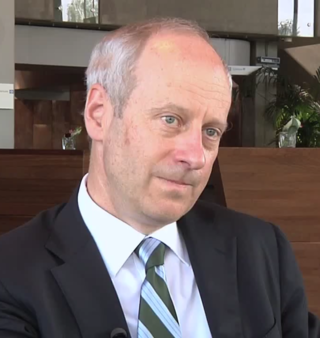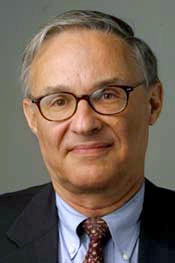
Francis Yoshihiro Fukuyama is an American political scientist, political economist, international relations scholar, and writer.

Posthumanism or post-humanism is an idea in continental philosophy and critical theory responding to the presence of anthropocentrism in 21st-century thought. Posthumanization comprises "those processes by which a society comes to include members other than 'natural' biological human beings who, in one way or another, contribute to the structures, dynamics, or meaning of the society."
Transhumanism is a philosophical and intellectual movement that advocates the enhancement of the human condition by developing and making widely available sophisticated technologies that can greatly enhance longevity, cognition, and well-being.

Suffering, or pain in a broad sense, may be an experience of unpleasantness or aversion, possibly associated with the perception of harm or threat of harm in an individual. Suffering is the basic element that makes up the negative valence of affective phenomena. The opposite of suffering is pleasure or happiness.

Edmund Wilson Jr. was an American writer, literary critic and journalist. He is widely regarded as one of the most important literary critics of the 20th century. Wilson began his career as a journalist, writing for publications such as Vanity Fair and The New Yorker. He helped to edit The New Republic, served as chief book critic for The New Yorker, and was a frequent contributor to The New York Review of Books. Wilson was the author of more than twenty books, including Axel's Castle, Patriotic Gore, and a work of fiction, Memoirs of Hecate County. He was a friend of many notable figures of the time, including F. Scott Fitzgerald, Ernest Hemingway, and John Dos Passos. His scheme for a Library of America series of national classic works came to fruition through the efforts of Jason Epstein after Wilson's death. He was a two-time winner of the National Book Award and received the Presidential Medal of Freedom in 1964.

Michael Joseph Sandel is an American political philosopher and the Anne T. and Robert M. Bass Professor of Government Theory at Harvard Law School, where his course Justice was the university's first course to be made freely available online and on television. It has been viewed by tens of millions of people around the world, including in China, where Sandel was named the 2011's "most influential foreign figure of the year". He is also known for his critique of John Rawls' A Theory of Justice in his first book, Liberalism and the Limits of Justice (1982). He was elected a Fellow of the American Academy of Arts and Sciences in 2002.

Farrar, Straus and Giroux (FSG) is an American book publishing company, founded in 1946 by Roger Williams Straus Jr. and John C. Farrar. FSG is known for publishing literary books, and its authors have won numerous awards, including Pulitzer Prizes, National Book Awards, and Nobel Prizes. As of 2016 the publisher is a division of Macmillan, whose parent company is the German publishing conglomerate Holtzbrinck Publishing Group.

Leon Richard Kass is an American physician, scientist, educator, and public intellectual. Kass is best known as a proponent of liberal arts education via the "Great Books," as a critic of human cloning, life extension, euthanasia and embryo research, and for his tenure as chairman of the President's Council on Bioethics from 2001 to 2005. Although Kass is often referred to as a bioethicist, he eschews the term and refers to himself as "an old-fashioned humanist. A humanist is concerned broadly with all aspects of human life, not just the ethical."

Alexander Stille is an American author and journalist.

Valerie Martin is an American novelist and short story writer.
Human nature comprises the fundamental dispositions and characteristics—including ways of thinking, feeling, and acting—that humans are said to have naturally. The term is often used to denote the essence of humankind, or what it 'means' to be human. This usage has proven to be controversial in that there is dispute as to whether or not such an essence actually exists.
Jennifer Sheila Uglow is an English biographer, historian, critic and publisher. She was an editorial director of Chatto & Windus. She has written critically acclaimed biographies of Elizabeth Gaskell, William Hogarth, Thomas Bewick, and Edward Lear, and a history and joint biography of the Lunar Society, among others, and has also compiled The Macmillan Dictionary of Women's Biography.

Below is a bibliography of published works written by Thomas Merton, the Trappist monk of The Abbey of Our Lady of Gethsemani. Several of the works listed here have been published posthumously. The works are listed under each category by date of publication.
Posthuman or post-human is a concept originating in the fields of science fiction, futurology, contemporary art, and philosophy that means a person or entity that exists in a state beyond being human. The concept aims at addressing a variety of questions, including ethics and justice, language and trans-species communication, social systems, and the intellectual aspirations of interdisciplinarity.

Phillip M. Hoose is an American writer of books, essays, stories, songs, and articles. His first published works were written for adults, but he turned his attention to children and young adults to keep up with his daughters. His work has been well received and honored more than once by the children's literature community. He won the Boston Globe–Horn Book Award, Nonfiction, for The Race to Save the Lord God Bird (2004), and the National Book Award, Young People's Literature, for Claudette Colvin (2009).
Marie K. Rutkoski in Hinsdale, Illinois is an American children's writer, and professor at Brooklyn College. She has three younger siblings. She graduated from the University of Iowa with a B.A. in English with a minor in French in 1999, and then her English M.A. and Ph.D. from Harvard University in 2003 and 2006 respectively. She lives in Brooklyn with her family and two cats, Cloud and Firefly.

James Miller is an American writer and academic. He is known for writing about Michel Foucault, philosophy as a way of life, social movements, popular culture, intellectual history, eighteenth century to the present; radical social theory and history of political philosophy. He currently teaches at The New School.

The Origins of Political Order: From Prehuman times to the French Revolution is a 2011 book by political economist Francis Fukuyama. The main thesis of the book covers three main components that gives rise to a stable political order in a state: the state needs to be modern and strong, to obey the rule of law governing the state and be accountable. This theory is argued by applying comparative political history to develop a theory of the stability of a political system. The book covers several regions, and uses case studies of political developments from these regions, the scope is wide and consists of ancient history to the early modern period. Fukuyama refers to Amartya Sen's view that democracy remains the default political condition. Though not universally accepted as a form of government, even autocratic leaders have maintained semblance of democracy for legitimisation of their rule and use of media for their projection as democratic leaders. However, the situation in Iraq and Afghanistan challenges the assumption as there is no default reset to democracy once the sitting governments or leaders are removed.
Bioconservatism is a philosophical and ethical stance that emphasizes caution and restraint in the use of biotechnologies, particularly those involving genetic manipulation and human enhancement. The term "bioconservatism" is a portmanteau of the words biology and conservatism.
List of works by or about Richard Powers, American novelist.













